Framing, tackling and learning from failure: 12 books on how to bounce back from setbacks and mistakes
For founders in their tough journeys ahead, YourStory offers a valuable resource: reviews of 12 useful books on how to interpret, bounce back, and guard against failures.
Launched in 2012, YourStory’s Book Review section features over 355 titles on innovation, entrepreneurship, creativity, and digital media. This selection of 12 Books on Failure offers a wealth of advice for innovators and leaders on how to frame and interpret failure, cope with the shock, bounce back, and capture useful lessons to guard against future failures.
News of mistakes rarely makes it to the press, but fortunately, there are conferences like FailCon that help entrepreneurs analyse failure. See also my articles on Eight lessons in failure from Amani Institute’s Fail Faire and Exit Plan B: Where is your parachute? 15 tips for winding down your startup.
See our annual pick of Top Quotes on Failure from 2022, 2021 and 2020. Check out these titles below, and click through to see our full book reviews. Browse through our author interview section as well, for more in-depth insights into entrepreneurship and resilience.
The Rebuilders: Going from Setback to Comeback in Business and Beyond, by Sara Tate and Anna Vogt

Each chapter in this must-read book is divided into four sections: myth, truth, tool, and story. The authors draw insights from Google, NHS, World Economic Forum, and experts from the fields of advertising, sports, and even human rights. The material is written in an engaging format, and backed by 18 pages of references and sources. See our full review here.
Fail-Safe Startup, by Tom Eisenmann

The book shares in-depth examples of failures of seven startups for reasons like the false promise (misplaced confidence from early success), false start (premature launch), and audacious goals (unsuccessful moonshots). It offers tips such as be persistent (but be willing to pivot), be passionate (but not overconfident), grow (but sustainably), and be scrappy (but don’t compromise on skills, quality, ethics). See the book review here.
The Other “F” Word: How Smart Leaders, Teams and Entrepreneurs Put Failure to Work, by John Danner and Mark Coopersmith
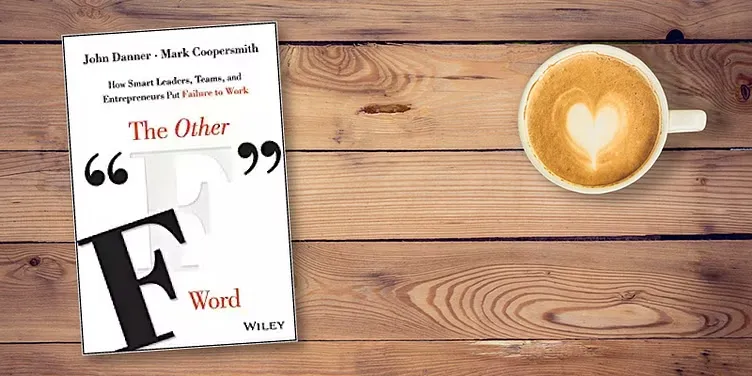
The core of this book is a seven-stage framework on how to harness failure, called the Failure Value Cycle: respect, rehearse, recognise, react, reflect, rebound, and remember. The authors argue that failure can actually be harnessed as a source of strategic advantage by startups, provided leaders adopt the right perspective and create the right kind of culture. See our book review here.
Who Blunders and How: The Dumb Side of the Corporate World, by Robin Banerjee

With numerous examples and frameworks, this author compellingly shows that there is a lot to learn from mistakes, failures, blunders, errors, lapses, traps, snags, bad judgment, mistiming, malpractice, deceit, fraud, and foibles as well. Forewarned is forearmed, and the lessons of hindsight and research can help avoid failures on your part as well, and prevent the destruction or erosion of value. See my book review here.
Adapt: Why Success Always Starts With Failure, by Tim Harford
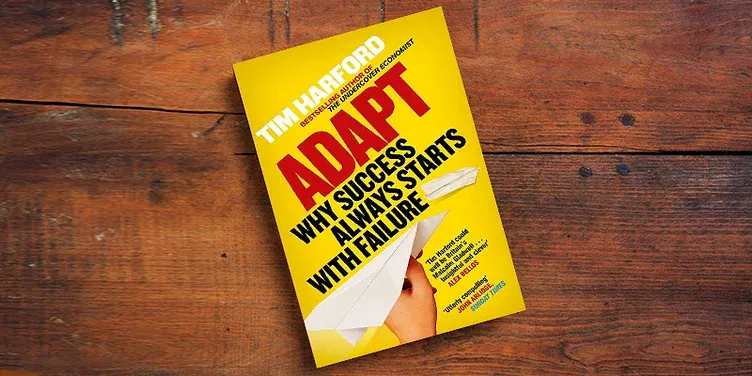
This book explains how disruptive innovation and political complexity are creating a fast-changing and often confusing world. From startups to governments, a mindset of experimentation and coping with failure is key for long-term success. The content spans business, finance, politics, biology, arts, neuroscience, and even military history, and is an entertaining and informative read. See my book review here.
The Up Side of Down: Why Failing Well Is the Key to Success, by Megan McArdle
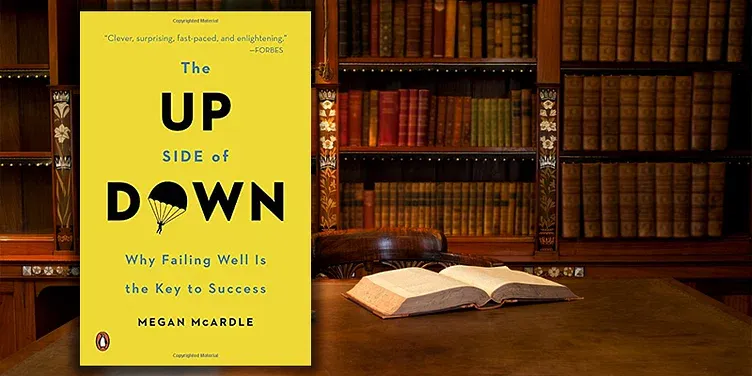
The 10 chapters in the 300-page book cover corporate scandals, movie flops, industry failures, financial crises, hospital errors, experts’ mistakes, education flaws, and even penal law. The material draws on studies by economists, psychologists and anthropologists. Effective people fail early, often, cheaply, gracefully, and even heroically. See my book review here.
The Wisdom of Failure: How to Learn the Tough Leadership Lessons Without Paying the Price, by Laurence Weinzimmer and Jim McConoughey
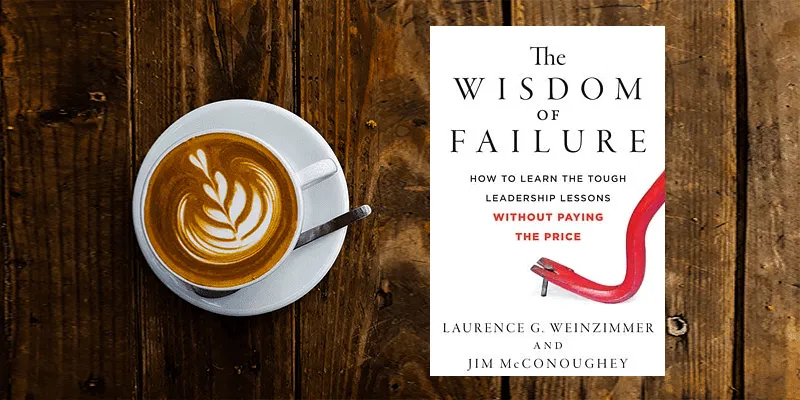
This book offers a useful classification of the different kinds of organisational and leadership failures. The case studies, learnings and recommendations are based on a seven-year study of what almost 1,000 managers across 21 industries really think about lessons from failures. See our book review here.
Fail Better: Design Smart Mistakes and Succeed Sooner, by Anjali Sastry and Kara Penn

The co-authors of this book explain that failures need to be seen as stepping stones to success, and fail-safe approaches and stories need to be shared with a wider audience. The book takes principles from scientific methods, lean startup management and agile software development, and generalises them to a broader audience. See my book review here.
Fail Fast or Win Big: The Startup Plan for Starting Now, by Bernhard Schroeder

This book draws on failure tips from four components of the author's lean framework: business models, lean resources, rapid prototyping and customer truth. Founders can learn faster and pivot to new options, thus reducing the risk of outright failure. The author draws on his marketing experience for brands such as Yahoo, Apple and Amazon. See my book review here.
Failing to Succeed: The Story of India’s First E-commerce Company, by K. Vaitheeswaran
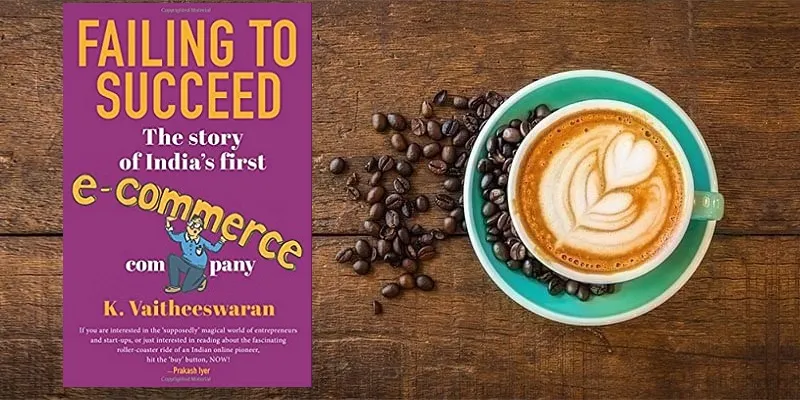
This book describes why and how the founder-author had to shut down his e-commerce venture due to a number of reasons. It offers valuable lessons and takeaways from the ups and downs of his emotional journey. “When the going gets tough, what’s terrible gets worse,” he describes. “Positivity at all times is a key ingredient for any entrepreneur,” he adds. Read our book review here.
The Biography of a Failed Venture: Decoding Success Secrets from the Blackbox of a Dead Startup, by Prashant Desai

The roller-coaster journey of Indian shoe brand D:FY is well-captured in this compelling case-study book. It captures the entrepreneur’s personal and professional journey across five phrases, catchily described in ‘5 Ds’ – desire, dream, dare, determination, and defeat. “There is fame when one succeeds, failure is shamed,” the author laments. See our book review here.
True North: Leading Authentically in Today's Workplace (Emerging Leader Edition), by Bill George and Zach Clayton
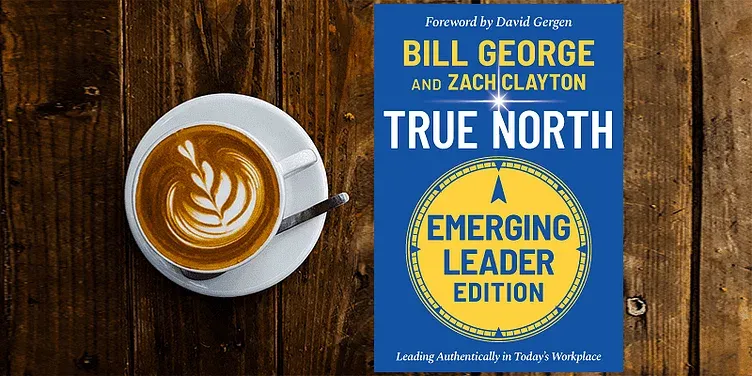
The authors chart the growth of leadership in three phases: preparation, peak, and generativity. They advise aspiring leaders to reflect on the highs and lows of their lives, reframe failures as learning experiences, reflect on the calling that adversity presents, and avoid ethical drift. “Although it’s relatively easier to rebound from a business failure, it’s considerably harder to recover from a significant character failure,” the authors caution. See our book review here.
YourStory has also published the pocketbook ‘Proverbs and Quotes for Entrepreneurs: A World of Inspiration for Startups’ as a creative and motivational guide for innovators (downloadable as apps here: Apple, Android).
Edited by Kanishk Singh









